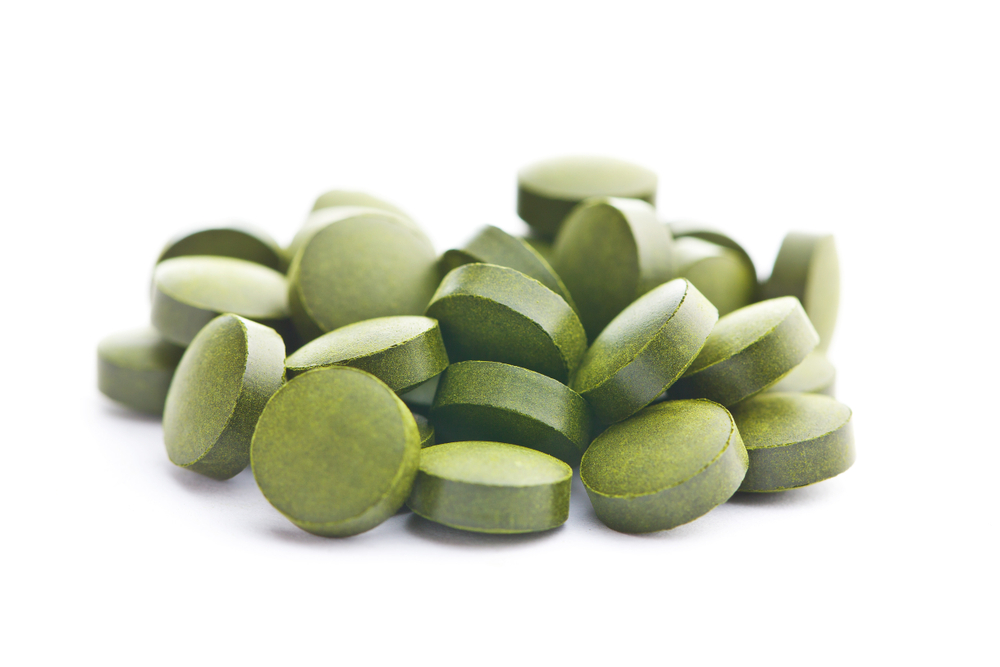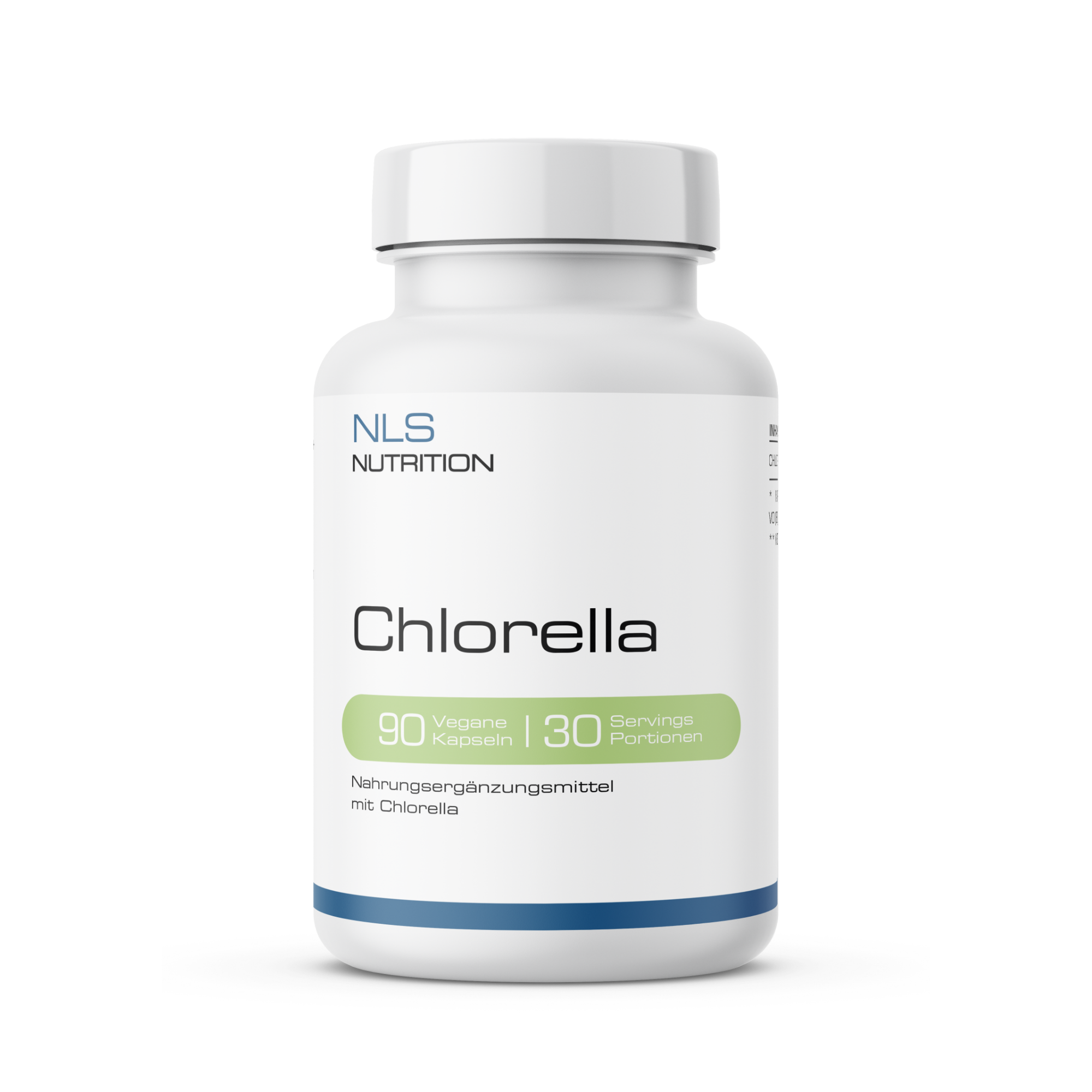
Chlorella as a superfood:
Everything
you need to know about this dietary supplement.
In this day and age, when we are constantly looking for ways to improve our health
and increase our well-being, superfoods are becoming
more and more popular. One superfood that has particularly come into the
focus in recent years is chlorella. But what exactly is chlorella and why is
it so highly praised as a dietary supplement? In this comprehensive article
we will take an in-depth look at chlorella and everything
you need to know about this green powerhouse.
What is chlorella?
Chlorella is a genus of single-celled, green freshwater algae that has been
on earth for billions of years. There are different types
of chlorella, but the most commonly used as a dietary supplement
are Chlorella vulgaris and Chlorella pyrenoidosa. This algae is known for
its high content of chlorophyll, the green pigment that gives plants their colour
and is responsible for photosynthesis.
Why is chlorella so popular as a superfood?
Chlorella is rich in a variety of nutrients and is therefore often referred to as a
superfood. These nutrients include:
- High quality protein: Chlorella is up to 60% protein and contains all nine essential amino acids, making it an excellent source of protein, especially for vegetarians and vegans.
- Vitamins: Chlorella is a rich source of vitamin C, vitamin B12 and other B vitamins.
- Minerals: Iron, magnesium, zinc and calcium are just some of the minerals found in chlorella.
- Antioxidants: Chlorella contains various antioxidants that can help the body to defend itself against oxidative stress.
- Omega-3 fatty acids: Despite its plant origin, chlorella also contains omega-3 fatty acids, which are known for their anti-inflammatory properties .
- Fibre: With its fibre content, the algae supports healthy digestion.
The health benefits of chlorella
The regular intake of chlorella as a dietary supplement can offer
several health benefits:
- Detoxification of the body: Chlorella is said to have the ability to bind heavy metals and other toxins from the body and excrete them .
- Immune system support: Some studies suggest that chlorella can increase the activity of natural killer cells in the body and thus strengthen the immune system.
- Improving digestion: Due to its high fibre content, chlorella can promote intestinal health and contribute to regular digestion.
- Cholesterol regulation: There is evidence that chlorella can help to reduce LDL cholesterol and increase HDL cholesterol.
- Blood sugar control: Some studies have shown that chlorella can help to regulate blood sugar levels in people with insulin resistance.
- Weight management: Chlorella can promote a feeling of satiety and thus be helpful in weight management.
How is chlorella taken?
Chlorella is available as a dietary supplement in various forms,
including tablets, capsules, powder and extracts. The dosage may vary depending on the
product, so it is important to follow the instructions on the packaging at
or consult a doctor or nutritionist.
The quality of chlorella products
Not all chlorella products are the same. A decisive quality feature
is the cell wall. The cell wall of chlorella algae can be difficult for the human
digestive tract to crack, so many manufacturers offer
"broken cell wall" products that increase the bioavailability of
nutrients. Also be sure to choose products from manufacturers
that are committed to purity and sustainability and conduct independent testing of their products
.
Sustainability and environmental compatibility
Chlorella can be beneficial not only for the human body, but also for the
environment. The algae culture requires less land area than
conventional agriculture and can contribute to CO2 reduction
through photosynthesis. When choosing chlorella products, you should therefore favour
sustainable and responsible brands.
Potential side effects and precautions
Although chlorella is considered safe and is well tolerated by many people,
some people may experience side effects, especially at high
dosages. These include gastrointestinal discomfort, nausea, dizziness and
skin sensitivity. As chlorella can affect blood clotting,
people taking blood thinners should consult a doctor
before taking it. Pregnant and breastfeeding women, children and people with
autoimmune diseases should also exercise caution.
How do you integrate chlorella into your everyday life?
Chlorella is easy to incorporate into your daily diet.
Chlorella powder can be stirred into smoothies, juices or yoghurts
, for example, to provide an additional dose of nutrients. Tablets
and capsules are a convenient alternative when travelling or for those
who do not like the taste of the algae.
Conclusion
Chlorella as a dietary supplement offers a wealth of health
benefits and can be a valuable addition to a balanced diet
. With its high nutrient content and ability to support health
in a variety of ways, it's no wonder chlorella is hailed as a
superfood. However, before incorporating chlorella into your diet,
you should check the quality of the product, determine the correct dosage
and consult a health professional if necessary. With the
right approach, chlorella can help you improve your well-being
and achieve your health goals.

